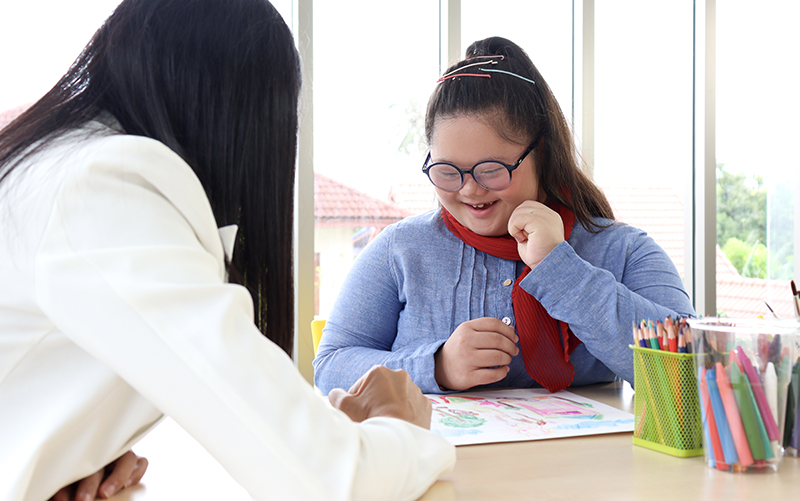Search
Research
The impact for DCD – USA study: The current state of Developmental Coordination Disorder (DCD) in the United States of AmericaDevelopmental Coordination Disorder (DCD) is among the most under-recognized and under-supported disorders worldwide. The aim of this study was to present a preliminary national study that evaluated the unmet needs of children with DCD in the USA using the Impact for DCD survey.
Research
CRISPR-Cas9-generated PTCHD1 2489T>G stem cells recapitulate patient phenotype when undergoing neural inductionAn estimated 3.5%-5.9% of the global population live with rare diseases, and approximately 80% of these diseases have a genetic cause. Rare genetic diseases are difficult to diagnose, with some affected individuals experiencing diagnostic delays of 5-30 years. Next-generation sequencing has improved clinical diagnostic rates to 33%-48%. In a majority of cases, novel variants potentially causing the disease are discovered.
Research
Young adult outcomes following premature birth: A Western Australian experienceChildhood outcomes following preterm birth are widely published, however long-term adult outcomes are less well described. We aimed to determine the quality of life and burden of co-morbidities experienced by preterm-born young adults in Western Australia.
Research
The 8th International RASopathies Symposium: Expanding research and care practice through global collaboration and advocacyGermline pathogenic variants in the RAS/mitogen-activated protein kinase (MAPK) signaling pathway are the molecular cause of RASopathies, a group of clinically overlapping genetic syndromes.
Research
A Co-Designed Online Education Resource on Gastrostomy Feeding for Parents and Caregivers to Support Clinical CareChildren with complex needs and severe disability may undergo gastrostomy insertion to support feeding difficulties. Parent education programs are critical components of clinical care pathways but there is little information on parent-reported educational needs. This study describes the collaborative process that yielded a resource to assist parents considering gastrostomy tube placement for their children, and the evaluation of the resource.
Research
Down syndrome and leukemia: from basic mechanisms to clinical advancesChildren with Down syndrome (DS, trisomy 21) are at a significantly higher risk of developing acute leukemia compared to the overall population. Many studies investigating the link between trisomy 21 and leukemia initiation and progression have been conducted over the last two decades.
Research
The development, content and response process validation of a caregiver-reported severity measure for CDKL5 deficiency disorderCDKL5 Deficiency Disorder (CDD) is a severe X-linked developmental and epileptic encephalopathy. Existing developmental outcome measures have floor effects and cannot capture incremental changes in symptoms. We modified the caregiver portion of a CDD clinical severity assessment (CCSA) and assessed content and response-process validity.

News & Events
Major grants fuel child health researchSix researchers from The Kids Research Institute Australia have been awarded $8.9 million in prestigious Investigator Grants from the National Health and Medical Research Council.

News & Events
Five researchers from The Kids awarded Early Career Child Health Researcher FellowshipsFive researchers from The Kids Research Institute Australia have been awarded three-year fellowships with the aim of keeping more WA-based PhD graduates involved in child health research.

News & Events
Participation key to quality of life for kids with disabilityThe Kids Research Institute Australia researchers have called for a greater focus on creating opportunities for children with disability to participate in the community, after finding a clear link between participation and better quality of life.
